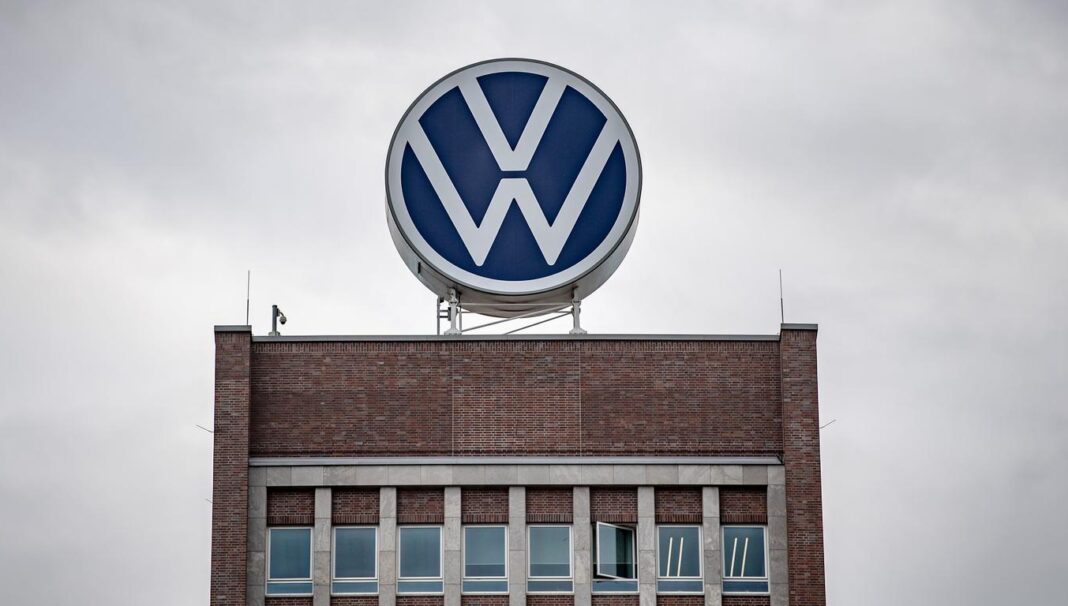BTN News: Volkswagen, Germany’s largest industrial employer, is on the brink of an unprecedented shift. The iconic automaker has announced plans to cancel its 30-year-old employment security program by 2029, a decision that could lead to factory closures and mass layoffs across Germany. This stark measure comes as Volkswagen grapples with a need to cut an additional €4 billion, on top of an already ambitious cost-cutting target of €10 billion by 2026. The crisis has raised alarms across the country’s automotive sector, sparking fierce opposition from labor unions and igniting a national debate over the future of Germany’s industrial landscape.
VW’s Cost-Cutting Plan: Drastic Measures Required
Volkswagen’s latest financial woes became public in 2023 when the company launched a rigorous austerity plan aimed at slashing €10 billion from its expenses by 2026. However, recent investigations by the German newspaper Handelsblatt reveal that this will not be enough. An additional €4 billion in savings is now required, pushing VW’s leadership to consider options previously deemed impossible — including plant closures.
According to Volkswagen’s CEO, Thomas Schäfer, the situation has become “extremely tense.” In a letter to employees dated September 2, 2024, Schäfer admitted that the company could no longer rely on “simple cost-cutting measures.” Instead, it must consider more radical steps to stay afloat in an increasingly competitive market.
Possible Plant Closures: Which Factories Are at Risk?
Volkswagen has not yet released specific details about which of its approximately 120,000 jobs in Germany may be at risk. However, speculation is rife, with company insiders suggesting that at least one vehicle plant and one components factory are on the chopping block.
One of the plants in the spotlight is located in Emden, Lower Saxony. This facility is a major employer in the region, alongside the Meyer shipyard. “Volkswagen and the Meyer shipyard are two of the largest employers in our area,” emphasized Tim Kruithoff, the Mayor of Emden, in an interview with DW. The closure of this plant would have significant economic consequences for the entire region.
Union Backlash: “Irresponsible Plan” Draws Fire from Labor Leaders
The response from labor unions has been swift and severe. Thorsten Gröger, a representative from IG Metall, the powerful metalworkers’ union, condemned the planned cuts as “short-sighted and very dangerous,” warning that such measures could “destroy the heart of Volkswagen.” Gröger vowed to fight back, stating, “We will fight with all our might, if necessary in a hard conflict, to preserve all centers and jobs of our colleagues.”
Unions are preparing for a prolonged battle to safeguard jobs, and the dispute is likely to become a critical test of labor relations in Germany’s automotive sector.
Industry Experts See Plant Closures as Inevitable
While unions are gearing up for a fight, many industry experts see plant closures as inevitable. Helena Wisbert, director of the Center for Automotive Research (CAR) in Duisburg, suggests that the current situation is a culmination of years of underutilization of plant capacities. “Until now, low capacity utilization at VW plants was offset by savings from suppliers, but that is no longer sufficient,” Wisbert explained in an interview with Der Spiegel.
Similarly, Moritz Schularick, president of the Kiel Institute for the World Economy, views VW’s cost-cutting measures as a reflection of a broader structural change in Germany’s automotive industry. “We should not stand in the way of structural change,” he told Wirtschaftswoche. “Emerging industries are desperately seeking labor.”
No State Intervention: A Shift in Industrial Policy?
Adding to the uncertainty, several economists, including Veronika Grimm, have advised against any form of state intervention to prevent the plant closures. Grimm, in her comments to Rheinische Post, underscored the importance of letting market forces take their course.
Ferdinand Dudenhöffer, an automobile expert, noted that VW’s close ties to the state of Lower Saxony — which owns a 20% stake in the company and holds a blocking minority on major decisions — complicate matters. “Volkswagen is more like a state company than a market economy enterprise,” he remarked.
“Germany is Deindustrializing,” Warns Local Leaders
The potential closures have also drawn criticism from local politicians. Tim Kruithoff, Mayor of Emden, described the recent cuts in electromobility subsidies as a “completely wrong decision.” He pointed to broader issues, arguing that Germany is “deindustrializing and losing industrial jobs.” He warned that the country is currently not competitive enough for the establishment of future technologies, such as battery cell production, and highlighted everyday challenges like charging infrastructure that remain unresolved.
The Road Ahead: What’s Next for Volkswagen and Germany’s Auto Industry?
As Volkswagen navigates these turbulent waters, the future of its German plants hangs in the balance. Will the automaker’s drastic cost-cutting measures pay off, or will they lead to an erosion of one of Germany’s most iconic brands? With unions, politicians, and industry experts weighing in, the coming months will be critical for Volkswagen and the broader German economy.
For now, the world watches as Volkswagen contemplates decisions that could reshape the landscape of Germany’s automotive industry for years to come.


